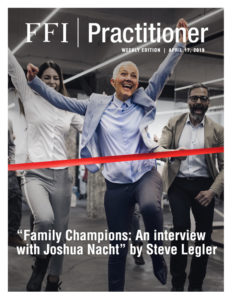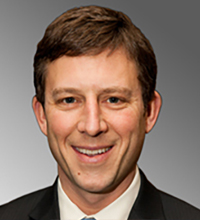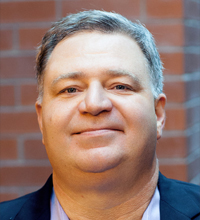
View this edition in our enhanced digital edition format with supporting visual insight and information.
This week’s FFI Practitioner features a conversation between Joshua Nacht and Steve Legler on the topic of “family champions” and Joshua’s recently-released book on the subject. Joshua and Steve discuss how to identify and develop a family champion as well as how practitioners can leverage a family champion in their work with family enterprises. We hope you enjoy listening!
Steve Legler (SL): Hello and welcome to the FFI Practitioner, an online publication of the Family Firm Institute. I’m Steve Legler and today I’m joined by Joshua Nacht, a consultant with the Family Business Consulting Group and the author of Family Champions and Champion Families. Welcome Josh. So the first thing I want I’d like to do is ask you to give us a quick background on the whole idea of the family champion and where did this idea came from?
Joshua Nacht (JN): I was working as a doctoral student. I was working with Dennis Jaffe, longtime FFI member, and he was working on his Good Fortune: Building a Hundred Year Family Enterprise research project. He was interviewing long standing 100-year-old families. And he asked me to help him with the interviews. In doing those interviews I realized that I ended up talking to the same type of person pretty frequently doing these interviews. They were typically chair of the family council and typically a third or fourth generation, and they played a really unique role in their family because they were not working in the business. But they were very involved in governance at the family council level and really leading their family. And as I talked to multiple people who played a similar type of role, I started to get interested in who this person was, what they did in their family, how they got there, and I really started to hone in on people who, for many purposes lead their family, to help the business.
SL: So, this was not some theory about a family champion — this was something you actually stumbled upon because you kept running into the same types in the different families you were interviewing?
JN: Yes, the same types. And then as I started to get interested in it and started to describe to people, the role and what I was looking at, and what I was interested in researching, Dennis thought it was a great idea. Then when I talked to other people in the family business field, they said, “Oh, I know who should talk to you,” or “you should talk to this person.” Or they, some people said, “Well, it might be me, let’s talk about it a bit.” And so, when I started to describe, it was something that I kind of stumbled upon, but then when they described that role to people, it was something that was familiar to a lot of people, both advisors and people in family business. And we were able to talk about it more and sort of form more definition around it.
SL: And then you actually went on and made this, the subject of your PhD Research and your dissertation.
JN: I knew that I had a good idea because it excited me. Dennis thought it was great. And like I said, when I talked to people in the family business world, they said, “Oh yeah, I know just what you’re talking about.” So, I really thought that I had something interesting here. I went on and kind of defined the type of role I was looking at. I interviewed 14 people who were really in that role. And then I interviewed as many people — another person in the family for each of those people — to find out about that person [the family champion] from a different perspective. And that was the whole research. It was very quantitative, semi-structured interviews and turned into my dissertation and that ended up turning into the book.
SL: Are you continuing to notice family champions in your work as a practitioner?
JN: I encountered family champions in a lot of my work with families. Not always, you know, not every family has them, not every family needs them, but in most families that I work with – whether that’s a really defined type of role, you know, chair of a family council that somebody who’s really said, yes, I’m very invested in helping lead the family, and making sure we succeed as a group of family owners to really support the business — or somebody who just kind of, like a lot of the people in my research, just stepped up of their own accord and recognize that, as a family we need to do better and nobody else is going to do it, so I’m going to do it. And they just emerge naturally into the role. So, it’s been fun to see family champions in more formalized positions as well as the ones that are very natural and organic and continuing to grow.
SL: It’s interesting when you meet these people, they probably don’t really realize that they’re a family champion. And as you were discussing, as you describe what it is, the people’s heads start nodding and they realize that yes, they are.
JN: It’s been kind of cool because I think that through the book and through other people using the term, the term “family champion” is becoming more familiar. And so, I have heard people say, “Well, I’m not really a family champion,” but they really are. Or you know, they kind of self-identify and they use the term, which I think is awesome. And then some I’ve never heard of it. And when I describe it, yeah, that’s, you can kind of see the light bulb go off and go on a little bit and they say, oh yeah, I think that, I think that might be me. Usually. I agree. Yes. That’s you.
SL: So, the idea of the family champion obviously resonated with me as well. Particularly the ways that practitioners like you and me and those listening can actually be an important resource for these people. Sometimes it’s a lonely role that these people play.
JN: I think that as an advisor and in speaking with other advisors, there’s only so much we can do, right? We are part of the system, but we are not part of the family system. I think that helping activate leadership within the family and helping support them, helping mentor and coach them and develop them produces some really effective results in the family because the family champion is a family member. They’re intimately involved, and I think they can achieve things on the family on a sort of daily, weekly, monthly basis that we as practitioners, either cannot, or it would take much longer to do. So, I think they’re a fantastic resource for advisors and something that we should really focus on to help achieve the goals that we’re all working towards.
SL: So, as practitioners, what should we be looking for? What should we be asking about and doing to support these people that are, as I said before, working in the shadows sometimes of these business families?
JN: I think that a lot of us would recognize the sort of natural leaders in the family, the type of person who is more engaged, who is stepping up for more responsibility, who is asking for more education and who is really, you know, somebody that is trusted in the family and has that credibility – and you know, that can occur on different levels. But then I think that what we do is sometimes in side conversations. We can encourage them. Sometimes it’s in a group meeting, sort of bringing them out more and helping them step into positions of responsibility. It’s also just overall helping support the type of people who are going to be more engaged, more energetic, and more motivated to do this type of work. I think a lot of times in my experience, they already hold some position of influence and credibility with the family. Whether that’s through their involvement with the family or through their outside work. A lot of family champions have had previous professional experience that has set them up well to help lead in the family.
So, I think that what we do is we breathe a little life into helping them step into more positions of responsibility and influence where they can really help the family along. And oftentimes I’ve seen with family members, nudge them in that direction too because they know they’d be good there.
SL: I also think that as, as advisors sometimes a we can be frustrated when we want the family to be moving a little more quickly on certain things and there isn’t necessarily the motivation. When we find that people are motivated, it’s an ideal kind of a tag team where we want to move more. We’ve got to find the person who wants to move more and together we can nudge the family a little bit quicker.
JN: I agree. I think that teamwork really helps move things forward in a way that’s much better than any one person.
SL: So, we got to find them and then we’ve got to support them as, as practitioners.
JN: And there’s been a coaching and mentoring and helping them develop along.
SL: It’s kind of an evolution and a long-term thing. You don’t walk in one day and say who’s the family champion? And next week you’re doing something. This happens over months and months and sometimes years.
JN: I think years, I talked with one family champion, we went through a lot of what she had done in the family and she said, “Well Josh, you know, this took years to do.” I was kind of getting the picture of it. She said, “This, this was years and we’ve had a lot of ups and downs,” and so I agree. I think this is just as we talk about long term patient capital and families. I think we’re talking about long term development, family champion work as well.
SL: Well this has been great Josh. Thanks for joining me today. I’m sure that this will provide lots of food for thought for the Practitioner audience. That’s it for this edition of the FFI Practitioner. Thanks for listening.
About the Contributors
 Joshua Nacht is a consultant with The Family Business Consulting Group and works with business families to leverage their strengths by focusing on effective governance, communication, and transitions. He earned a Ph.D. in Organizational Systems with a focus on family-enterprise from Saybrook University. His dissertation research, “The Role of the Family Champion,” won the Best Dissertation Award from the Family Firm Institute in 2016. He can be reached at nacht@thefbcg.com.
Joshua Nacht is a consultant with The Family Business Consulting Group and works with business families to leverage their strengths by focusing on effective governance, communication, and transitions. He earned a Ph.D. in Organizational Systems with a focus on family-enterprise from Saybrook University. His dissertation research, “The Role of the Family Champion,” won the Best Dissertation Award from the Family Firm Institute in 2016. He can be reached at nacht@thefbcg.com.
 Steve Legler is a family legacy advisor based in Montreal, Canada. He works with family clients as a facilitator, and sometimes as a mediator. He also does individual coaching with family members. Steve holds advanced certificates in Family Business and Family Wealth Advising from FFI. He is the author of SHIFT your Family Business (2014) and the upcoming Interdependent Wealth: How Family Systems Theory Illuminates Successful Intergenerational Wealth Transitions (Summer 2019). Steve can be reached at steve@familylegacyshift.com.
Steve Legler is a family legacy advisor based in Montreal, Canada. He works with family clients as a facilitator, and sometimes as a mediator. He also does individual coaching with family members. Steve holds advanced certificates in Family Business and Family Wealth Advising from FFI. He is the author of SHIFT your Family Business (2014) and the upcoming Interdependent Wealth: How Family Systems Theory Illuminates Successful Intergenerational Wealth Transitions (Summer 2019). Steve can be reached at steve@familylegacyshift.com.

View this edition in our enhanced digital edition format with supporting visual insight and information.





